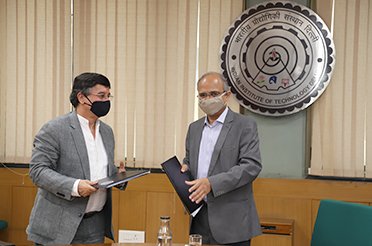Inside BENEO’s new pulse plant: pioneering sustainable protein from faba beans
For enhancing the efficiency and effectiveness of the Government’s food safety nets through operations research
The United Nations World Food Programme (WFP) India and Indian Institute of Technology (IIT) Delhi have agreed to combine forces to develop innovative solutions for enhancing the efficiency and effectiveness of the Government’s food safety nets through operations research.
The overall aim of this partnership is to create sustainable models that can be replicated across the country, the region and beyond.
This collaboration between a premier Indian Research and Development Institution and the largest Humanitarian UN Agency focusing on supporting governments achieve food and nutrition security, is a step forward in this direction.
The overall objective of this partnership is to use advanced analytics and operations research to develop practical solutions that support long term strategic planning of procurement, storage, and movement of food grains by agencies such as the Food Corporation of India (FCI) and, at the same time create cost-effective supply chain networks for distribution of these food grains under the Targeted Public Distribution System (TPDS) at the state level.
This will be especially relevant for states such as Uttarakhand, where maintaining a consistent availability and supply of food grains year-round is a challenge due to factors such as difficult terrain, limited availability of transporters, restricted windows for transportation and disintegrated storage spaces.
In close collaboration with the state and national governments, IIT Delhi and WFP will utilise their technical expertise in operations research and supply chain optimisation to collect and analyse important operational data such as current stocks, projected harvest yields, and consumption figures.
Together they will identify their challenges and constraints, which will lead to the development of TPDS supply chain networks that will ensure a constant supply of food grains under TPDS in the most cost-effective and administratively efficient manner.

